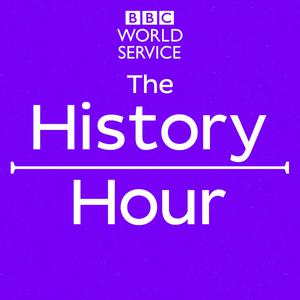
The History Hour
BBC World Service
A compilation of the latest Witness History programmes.
- 51 minutes 2 secondsThirty years since the first free elections in South Africa
It’s been thirty years since the first fully democratic elections in South Africa, which saw the African National Congress take power in 1994.
But two years before that historic moment, white South Africans had to vote in a referendum that would decide whether or not to usher in a multi-racial government. We hear from President FW de Klerk’s then communications officer about how they helped “close the book on apartheid.”
Then we journey back to 1976 and hear about the Soweto Uprising, a student led protest against the enforced study of Afrikaans. Bongi Mkhabela who helped organise the peaceful march, tells us how it came to a bloody and tragic end.
Plus we take a look at the pivotal role played by women and girls in the lead up to the 1994 elections. Journalist and researcher Shanthini Naidoo tells us why women’s work and activism in the ANC is so often overlooked.
We hear from Oliver Tambo’s son about his father’s return to South Africa after 30 years in exile.
We also hear about the long overdue return of Sarah Baartman’s remains to South Africa, after over 190 years being kept in Europe, where she suffered horrific abuse while she was alive. This programme contains discriminatory language.
And finally, we learn about one of South Africa’s biggest popstars Brenda Fassie, from her friend, rival and admirer Yvonne Chaka Chaka.
Contributors: David Stewards – President FW de Klerk’s former communications advisor Bongi Mkhabela- Student organiser of the Soweto uprising Shanthini Naidoo- Journalist and researcher on women during apartheid Dali Tambo- Son of Oliver Tambo Diana Ferrus – Poet who helped bring Sarah Baartman home Yvonne Chaka Chaka- South African popstar
(Photo: Nelson Mandela after winning the election in 1994. Credit: Getty Images)
26 April 2024, 11:30 pm - 50 minutes 50 secondsEbola outbreak and the Friendship Train returns
Max Pearson presents a collection of this week’s Witness History episodes from the BBC World Service.
It’s 10 years since the world’s deadliest outbreak of Ebola started in West Africa. We hear from a survivor and discuss the legacy of the epidemic with the BBC's global health reporter Tulip Mazumdar.
Plus, the first World War Two battalion to be led by an African-American woman. Major Charity Adams’ son tells her story.
We hear about the group of men arrested in Egypt in 2001 at a gay nightclub who became known as the Cairo 52.
We also hear about the avalanche on Mount Everest which killed 16 sherpas carrying supplies 10 years ago.
Finally, the train service between India and Bangladesh that lay dormant for 43 years which rumbled back into life in 2008.
Contributors:
Yusuf Kabba – an Ebola survivor from Sierra Leone Tulip Mazumdar - the BBC's Global Heath reporter. Stanley Earley – son of Major Charity Adams Omer (a pseudonym) - arrested and imprisoned at a gay club in Cairo Lakpa Rita Sherpa - helped recover bodies after the avalanche on Mount Everest in 2014 Dr Azad Chowdhury – on the inaugural Friendship Express
(Photo: Liberian Health Minister Burnice Dahn washes her hands at a holding centre for Ebola patients in 2014. Credit: Getty Images)
20 April 2024, 4:00 pm - 50 minutes 59 secondsThe history of art heists
Max Pearson presents a collection of this week’s Witness History episodes from the BBC World Service.
It's 30 years since Edvard Munch’s painting, The Scream, was stolen from the national gallery in Oslo, Norway. We hear from the man who helped to recover it.
Our expert guest is historian and author, Susan Ronald, who explores the history of art heists in the 20th century.
Plus, a first hand account from Kampala terror attacks in 2010 and the mystery of St Teresa of Avila's severed hand.
Finally, we hear about the last World War II soldier to surrender. Hiroo Onoda was an Imperial Japanese Army intelligence officer who spent nearly 30 years in the Philippine jungle, believing World War Two was still going on.
Contributors: Kuddzu Isaac - DJ and Kampala terror attack survivor Charley Hill - Scotland Yard art detective and private investigator Susan Ronald - historian and author Sister Jenifer - the Mother Superior of the Church of Our Lady of Mercy, Ronda Hiroo Onoda - Japanese WWII soldier Christos and Ioanna Kotsikas - residents of Thessaly, Greece
(Photo: The Scream. Credit: Getty Images)
12 April 2024, 11:30 pm - 50 minutes 57 secondsSwedish History
Max Pearson presents a collection of this week’s Witness History episodes from the BBC World Service.
It has been 50 years since Abba won the 1974 Eurovision Song Contest, so we're exploring Swedish history. Also in 1974, Sweden became the first country in the world to offer paid parental leave that was gender neutral. One father who took the leave tells us about this pioneering policy. We hear from one of the inventors of Bluetooth. The technology was named after Harald Bluetooth, a Viking king. Our expert guest is Eva Krutmeijer, Swedish science writer and co-author of the book ' Innovation, the Swedish Way’.
Plus, the invention of the three-point safety belt for cars, that is estimated to have saved more than one million lives around the world, and the story behind Sweden’s Cinnamon Bun Day. Finally, 1974 was just the beginning for the Swedish quartet, Abba, who shared their name with a herring company. By the end of the decade, they were one of most recognisable music acts of the 20th century. Contributors: Per Edlund - one of the first fathers in his town to take split paid parental leave Sven Mattison - one of the inventors of Bluetooth Eva Krutmeijer - Swedish science writer and co-author of the book 'Innovation, the Swedish Way' Gunnar Ornmark - stepson of Nils Bohlin who invented the three-point safety belt for cars Kaeth Gardestedt - who came up with the idea of Sweden's Cinnamon Bun Day Görel Hanser - manager of Abba (Photo: Abba in 1974. Credit: Anwar Hussein/Getty Images)
5 April 2024, 11:30 pm - 52 minutes 37 secondsSeventy-five years of Nato and the Heimlich Manoeuvre
It's 75 years since the founding of Nato. In 1949, a group of 12 countries formed the North Atlantic Treaty Organization to block the expansion of the Soviet Union.
Professor Sten Rynning, the author of Nato: From Cold War to Ukraine, talks about some of the most significant moments in Nato's history.
It's 30 years since the beginning of the Rwandan genocide. We hear from one of the survivors, Antoinette Mutabazi. This programme contains disturbing content.
Plus, Riyaz Begum reflects on Britain's Mirpuri migration, Janet Heimlich, daughter of Dr Henry Heimlich talks about the origins of the Heimlich Manoeuvre and Adam Trimingham, Brighton based journalist and nudist David Johnson recall the arrival of Britain's first nudist beach.
(Photo: British Foreign Secretary Ernest Bevin signs the North Atlantic Treaty. Credit: Keystone/Hulton Archive/Getty Images)
30 March 2024, 12:30 am - 52 minutes 5 secondsChinese history
Max Pearson presents a collection of this week’s Witness History episodes from the BBC World Service.
To mark 50 years since the discovery of the Terracotta Army, we're exploring modern Chinese history.
We hear from the man who helped to modernise the Chinese language by creating a new writing system. It's called Pinyin and it used the Roman alphabet to help simplify Chinese characters into words.
Our expert guest is the writer, Mark O'Neill, whose book 'The Man Who Made China a Literate Nation' forms the basis of a great discussion about historical language changes throughout history.
Plus, a first hand experience of life in labour camps during Mao Zedong’s cultural revolution and the women forced into sexual slavery by the Japanese Imperial army during the 1930s. This programme contains disturbing content.
Contributors: Mark O'Neill - writer Zhou Youguang - linguist Jingyu Li - victim of Mao Zedong's labour camps Peng Zhuying - survivor of sexual slavery Yuan Zhongyi - archaeologist Dr Li Xiuzhen - archaeologist Simon Napier-Bell - manager of Wham
(Photo: Terracotta Army. Credit: Getty Images)
23 March 2024, 12:30 am - 52 minutes 7 secondsFinding early vertebrate’s footprints and the Deaflympic badminton champion
First, we go back to 1992, when off the coast of Ireland, a Swiss geology student accidentally discovered the longest set of footprints made by the first four-legged animals to walk on earth.
They pointed to a new date for the key milestone in evolution, when the first amphibians left the water 385 million years ago.
Dr Frankie Dunn, who is a senior researcher in palaeobiology at the Oxford University Museum of Natural History in the UK, then dives into landmark discoveries in geological history.
Plus, the story of Winifred Atwell, a classically-trained pianist from Trinidad who was admired by Queen Elizabeth II and Sir Elton John. She became one of the best-selling artists of the 1950s in the UK.
Then, how the Guarani, an indigenous language of South America, was designated an official language in Paraguay’s new constitution, alongside Spanish.
Also, the lesser known last eruption of Mount Vesuvius in 1944.
Finally, Indian badminton player Rajeev Bagga who has won 14 gold medals at the Deaflympics. In 2001, he was given the ‘Deaflympian of the Century’ award.
Contributors: Iwan Stössel - Swiss Geologist. Dr Frankie Dunn - Senior Researcher in Palaeobiology at the Oxford University Museum of Natural History in the UK. David Olivera - Paraguayan Linguist and Anthropologist. Angelina Formisano - Evacuated from the village of San Sebastiano during the 1944 eruption of Mount Vesuvius. Rajeev Bagga - Indian Badminton Player.
(Picture: Illustration of a tetrapod from the Late Devonian period. Credit: Christian Jegou/Science Photo Library)
16 March 2024, 12:30 am - 51 minutes 55 secondsUruguay's smoking ban and the Carnation Revolution
Max Pearson presents a collection of this week’s Witness History episodes from the BBC World Service.
We first hear about Uruguay’s tale of David v Goliath - when a tobacco giant took South America's second-smallest country to court over its anti-smoking laws.
Uruguay’s former public health minister María Julia Muñoz describes the significance of the ban and its fallout.
And we shed some light on the wider history of the use of tobacco, its long and controversial history, with Dr Sarah Inskip, a bio-archaeologist at the University of Leicester in the UK.
Plus, the largest search operation in aviation history - ten years on, little is known of the fate of MH370 and the 239 people on board.
Also, Sister Rosemary Nyirumbe on how her sewing school in northern Uganda served as a place of rehabilitation for child soldiers escaping Joseph Kony’s Lord's Resistance Army.
Then, the Carnation Revolution - how Europe’s longest-surviving authoritarian regime was toppled in a day, with barely a drop of blood spilled.
Finally, in August and September 1939, tens of thousands of children began to be evacuated from Paris. Colette Martel, who was nine at the time, describes how a pair of clogs made her feel welcome.
Contributors: María Julia Muñoz - Uruguay’s former public health minister. Dr Sarah Inskip - A bio-archaeologist at the University of Leicester in the UK. Ghyslain Wattrelos - Whose wife and two children were on flight MH370. Adelino Gomes - Witness of the 1974 Carnation Revolution. Colette Martel - Child evacuee in World War Two.
(Photo: An anti-tobacco installation in Montevideo. Credit: Reuters/ Pablo La Rosa)
9 March 2024, 12:30 am - 51 minutes 32 secondsWhisky wars and the Lord of Sipan
Max Pearson presents a collection of this week’s Witness History episodes from the BBC World Service. We first hear about a bloodless war between Denmark and Canada, that involved whisky.
In 1984, the two nations were disputing the ownership of the tiny Hans Island, just off the coast of Greenland. It might be the friendliest territorial dispute ever.
We hear from Tom Hoyem and Alan Kessel, politicians on either side.
And we have historian Ditte Melitha Kristensen, from the National Museum and Archives of Greenland, to shed some light on the history of the country.
Plus, how Peruvian archaeologist Walter Alva discovered the richest tomb ever found in the America’s: the final resting place of the ancient ruler, the Lord of Sipan.
Also, we go back to the 1960s when 1,500 Torah scrolls appeared at a synagogue in London.
And a Crimea double-bill. We go back to 2014 when Russia annexed the Ukranian peninsula, and then back to the 1980s, when it was used as a holiday camp for children across the Soviet Union.
Contributors: Tom Hoyem— Minister for Greenland in Denmark. Alan Kessel— Assistant Deputy Minister for Legal Affairs in Canada. Ditte Melitha Kristensen — Greenland historian. Walter Alva— Archaeologist. Phillippa Bernard — Founder member of Westminster Synagogue. Maria Kim Espeland — One of the thousands of children who visited the Artek holiday camp.
(Photo: Greenland. Credit: Thomas Traasdashi/Ritzau Scanpix/AFP via Getty Images)
2 March 2024, 12:30 am - 52 minutes 9 secondsSkiing and two-headed dogs
Max Pearson presents a collection of this week’s Witness History episodes from the BBC World Service. We hear about the famous ski resort, Whistler Blackcomb.
In 2003, the venue won its bid to host the Winter Olympic Games for the first time. Hugh Smythe, known as one of the ‘founding fathers’ of Whistler, has been sharing his memories of the mountain. We also have former Winter Olympian and BBC presenter, Chemmy Alcott, to walk us through the long history of skiing.
Plus, how the tiny island nation of American Samoa suffered the worst defeat ever in international football.
Also, the shocking creation of a two-headed dog by a Soviet scientist.
The murder of transgender woman in Honduras during a military coup in 2009.
And, a long-running dispute over the final resting place of Christopher Columbus’ ashes.
Contributors: Hugh Smythe — One of the ‘founding fathers’ of Whistler. Chemmy Alcott — Former Winter Olympian and TV presenter. Nicky Salapu—American Samoa goalkeeper. Igor Konstantinov — Consultant cardiothoracic surgeon. Claudia Spelman — LGBT activist. Angelita Baeyens — Human rights lawyer. Samuel Bisono — Tour guide and historian.
(Photo: Whistler Blackcomb ski resort. Credit: James MacDonald/Bloomberg via Getty Images)
24 February 2024, 12:30 am - 51 minutes 55 secondsLetters to Juliet and Saint Valentine’s traditions
Max Pearson presents a collection of this week’s Witness History episodes from the BBC World Service.
We hear about the Juliet Club in Verona, Italy. The club has been replying to mail addressed to Shakespeare’s tragic heroine, Juliet since the early 1990s.
Professor Lisa Bitel talks about the traditions of Valentine’s Day.
Plus, how the small Irish town of Gort became known as ‘Little Brazil’ because it's home to so many Brazilians. The World War Two escape line that fooled the Nazis and the stadium disaster that shocked Egypt.
And the story of the food supplement used by soldiers during the Nigerian civil war that became a drink enjoyed in more than 70 countries around the world.
Contributors: Giovanna Tamassia - daughter of Giulio Tamassia, one of the founders of the Juliet Club. Professor Lisa Bitel - Professor of History & Religion at the University of Southern California, USA. Lucimeire Trindade – resident of Gort, Ireland. Keith Janes – son of captured a British soldier. Christine Lepers – daughter of a French resistance fighter. Mahmoud Al-Khawaga – former footballer with Zamalek. Peter Rasmussen – creator of the drink Supermalt.
(Photo: Giovanna Tamassia from the Juliet Club. Credit: Leonello Bertolucci/Getty Images)
17 February 2024, 12:30 am - More Episodes? Get the App
Your feedback is valuable to us. Should you encounter any bugs, glitches, lack of functionality or other problems, please email us on [email protected] or join Moon.FM Telegram Group where you can talk directly to the dev team who are happy to answer any queries.
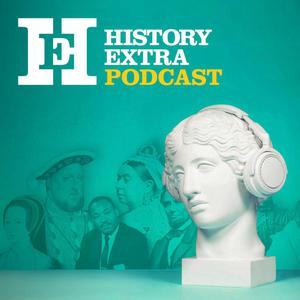 History Extra podcast
History Extra podcast
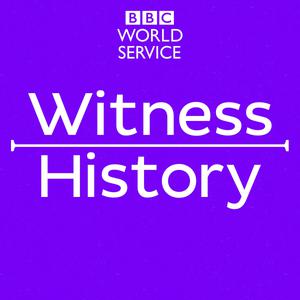 Witness History
Witness History
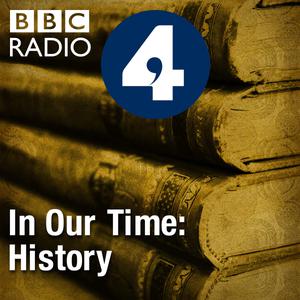 In Our Time: History
In Our Time: History
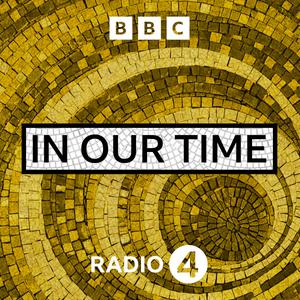 In Our Time
In Our Time
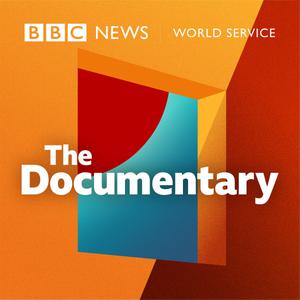 The Documentary Podcast
The Documentary Podcast
 The Inquiry
The Inquiry